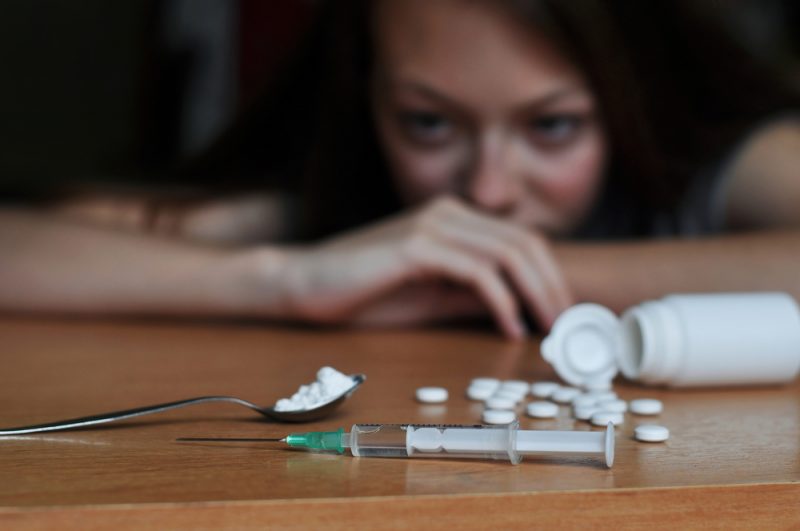No matter how deep in addiction someone may think he or she is, there is always a chance to get sober and stay sober. Sure, it won’t be easy. Nothing in life that is truly meaningful is ever easy. To get something of value such as a clean and healthy life, one must work for it every day. If you or your loved one is thinking about getting clean, one of the first things that come to mind would be is sober living worth it? We answer a resounding yes! It may be hard but it will be absolutely worth it.
How to Tell if You’re Suffering from Addiction
At this point, may you or your loved one is still in denial about being addicted to a particular substance such as alcohol or drugs. The likelihood of a person to become addicted to a substance is influenced by the family history, environment, and personal events that happened in one’s life that may have triggered them to turn to drug or alcohol use.
If you want to check if you’re getting addicted to something, here’s a list of signs to watch out for.
Negative Consequences Don’t Stop You
When you are addicted to something, you don’t think about the negative impacts of your actions on your life anymore. A brain that has been influenced by drug or alcohol use will justify or ignore the problems that the addiction has been causing.
All the brain wants to do is to continue taking the substance so that it can get its fix. A person with addiction problems no longer see that there are already problems with their job, health, relationship, and finances.
Your Priorities Change
An addiction to a substance can lead a person to change their priorities in favour of being able to get high. This often means that they don’t pay as much attention to even the basic things anymore such as hygiene or food.
When it comes to social relationships, a person with drug or alcohol use disorder will prefer spending time with people who also have the same lifestyle of using substances rather than be with their loved ones.
You Experience Withdrawal Symptoms
Often, a person who uses drugs or alcohol would want to stop because they know the consequences of their behaviour. However, when they do try and attempt to cut the habit, they experience withdrawal symptoms.
Such symptoms can vary depending on the substance that’s being used and how heavy the consumption was. It can range from tremors to seizures and anxiety and depression. This often leads a person back to their old habits because the withdrawal symptoms are just too unpleasant to endure.
You Become More Secretive
This sign of being addicted to something is more noticeable for family members and friends of a person with an addiction. Such a person will become more secretive about their activities and relationships. They don’t say where they’re going or what they’re doing.
Usually, they’ll lie about their activities and who they’re spending time with. A person with addiction knows that there is something shameful about what they’re doing. That is why they keep things secret so that no one would have to judge them or interfere with their drug or alcohol use.
Increased Tolerance to the Substance
When we talk about tolerance to a particular substance, it doesn’t mean that the body is able to take it in large amounts. Rather, it is the relationship between the behaviour and reaction of the person and the quantity of the drug or alcohol being consumed.
As one falls deeper into addiction, the body becomes more accustomed to the substance. Because of this, a larger amount is needed for them to get the same kind of high as before. As a person becomes more addicted, it becomes difficult for them to notice that they have been increasing the amount of consumption just so they can get the same feeling out of it.
Stopping Becomes Difficult
Among the most noticeable symptoms of becoming addicted to a substance is when the person is unable to limit their use of it. With addiction, there is little to no impulse control.
Even when the person wants to stop or limit the use of the substance, it’s almost impossible to have control over their own behaviour. At that point, it’s the addiction that is already controlling the actions of the person and they are unable to stop using their drug of choice.
Increased Risky Behaviours
A brain that is getting addicted will be taking more and more risks just to consume drugs or alcohol. Many studies have noted how the structure of the brain becomes rewired in ways that it will be more willing to take risks.
Some examples of such risky behaviours include stealing money from family and friends, staying up all night before an important meeting at the office the next day, going to dangerous places to acquire drugs, and so on.
There are also other risks when a person is high. People with drug or alcohol problems usually can no longer regulate their behaviour. A common example here is driving beyond the city speed limits.
Making Excuses and Lying
Among the key characteristics of being addicted to a substance is lying and making excuses to family and friends. Even when the loved ones of a person with drug problems are showing their concern, he or she will just shrug it off and act as if it is not a serious matter.
This kind of behaviour is common among drug users. They will deny their addiction to others. If they are caught, they will make excuses or justify why they are doing it. They cannot admit to themselves or to anyone for that matter that they are indeed going deep into their addiction.
Increased Dependency on Drugs or Alcohol to Deal with Problems
Many people with drug use problems feel that they cannot function without first using their drug of choice. This is among the top reasons why addicts do not seek treatment. They feel that they cannot live and do anything without consuming alcohol or taking drugs.
When people with drug problems are confronted as to why they don’t seek help, they usually answer that they are not ready to stop using drugs or alcohol yet. They feel that there is a “right time” for it but cannot say a definite time. The dependence has increased so much that every action, especially in dealing with problems, relies on whether or not the person is able to use drugs or drink alcohol first.
If you or your loved one is experiencing any of these signs of addiction, it is best to inform those that you trust. This is so that you can get the support that you need. The next step is to go to a doctor who can recommend how to proceed such as going to therapy and finding the best drug treatment facility.
The Many Effects of Being Addicted
By now, you may already know that drugs and alcohol can greatly affect the brain and one’s health. Various drugs can cause different effects. Some of these effects include long-lasting and permanent health problems.
Such health problems may even continue long after the drug or alcohol use has stopped. That’s why it’s better to address addiction early on to prevent permanent damage to the body.
There are different ways that drugs can be consumed. Some methods include ingestion, inhalation, and injection. The drug’s effects on one’s body on how the substance was consumed.
When the drug has been injected directly into the person’s bloodstream, then the impact is immediate. Ingesting the drug will cause a more delayed effect. Regardless of how the drug was consumed, it will be affecting the brain.
When a person uses drugs, huge amounts of dopamine flood the person’s brain. Dopamine is a neurotransmitter which helps in regulating our feelings of happiness and pleasure, emotions, and motivations. Too much of it causes a person to feel high.
With constant drug use, the drugs are able to change the way that the brain works. It affects the brain so much that the person’s capacity to make rational choices becomes distorted. This leads to very intense drug use and compulsive cravings. This, in turn, makes a person fall deeper into drug addiction.
Today, countless people around the world have drug dependency problems. Many have died because of drug overdose or accidents caused by drug use. More are becoming ill and have irreparable health conditions.
This is why family and friends of drug users are afraid that they will lose their loved ones to addiction. The good thing here is that drug addiction can still be treated and drug users can recover.

How Drug Addiction Affects the Health
Drug addiction has many different health effects, both short-term and long-term. These effects on the health depend on what type of drug was used and the frequency of the drug use. All, if not most, of the organs in the body, become affected when a person consumes illegal drugs.
These are some of the side effects that a person with drug addiction may experience.
- The immune system becomes week. There is an increased risk of infection and illness.
- The heart suffers because of unusual heart rates. This can cause some veins to collapse and blood vessels to be infected. Heart attacks are also common.
- Abdominal pain and nausea leading to appetite changes as well as weight loss.
- Drug use strains the liver. The person with an addiction can have liver damage and eventually, liver failure.
- Seizures may be experienced. It will not only cause mental confusion but stroke and brain damage as well.
- Drug users may develop lung disease because of constant drug use.
- Problems staying focused, making decisions, and remembering things will make the daily life of a person with drug addiction difficult.
- Death is the most severe effect of drug use on the health of a person.
How Drug Addiction Affects the Brain
All kinds of drugs including marijuana, cocaine, nicotine, and others can affect the reward system of the brain. This part of the brain is where the mood and instinct become affected. Once the drug influences the brain, dopamine is released and floods it, making the person feel intense pleasure. This is the kind of high that addicts look for.
Initially, drug use may be because of a voluntary decision to take it. However, as time goes by and the drugs change the chemistry of the brain, then the person loses control and becomes addicted. The brain can send out signals for the body to have intense cravings and excessive drug use.
With alcohol, there are both short-term and long-term effects on a person’s brain. Alcohol can disrupt the communication pathways of the brain. This, in turn, affects the cognitive function, mood, and behaviour of the person.
Brain damage is another common problem when it comes to drug and alcohol addiction. The person can become deficient in necessary nutrients that the body needs. There can be seizures caused by drug and alcohol use as well as organ disease and failures.
With the right treatment for addiction, these effects on the brain and the health can be prevented. It is important that loved ones of a person with drug use problems can help and support so that the treatment can become successful.
How Drug Addiction Affects the Behaviour
There are numerous behavioural problems that can result from drug addiction. They can be both short-term and long-term effects. Here are some of them:
- Aggressiveness
- Addiction
- Impulsiveness
- Impaired judgment
- Paranoia
- Hallucinations
- Loss of self-control
There are serious consequences when a person becomes addicted to a substance. They can miss work, break the law, cause or become involved in accidents and injuries. Many incidents such as domestic violence and driving while intoxicated is usually caused by alcohol or drug use. This is why people with addiction usually face jail time because of offences caused by the drug’s effects on their behaviour.
Related article: Does Sober Living Work? An In-Depth Explanation
How to Convince a Loved One to Seek Treatment
Having a loved one with drinking problems or is getting hooked on drugs can be difficult for the whole family. It is normal for everyone to be concerned but at the same time confused about what should be done.
You want to help them but don’t know where to start. You may feel reluctant and afraid to confront them about their drug addiction problems. Here are some tips on how you can talk to your loved one to seek treatment.
Read about Drug Use and Treatment
It is important for you or anyone who wants to confront a person about their drug addiction to have some knowledge about this condition. You would want to be able to understand what they are going through and what are the possible options when it comes to treatment.
By reading about drug use and drug addiction, you will also gain understanding about what could have been the possible cause of it. You’ll also understand the effects of drug use on a person’s brain, health, and behaviour. This will allow you to talk to your loved one and make them think about the damage they’re causing their mind and body.
Drug addiction is a very broad topic and even at searching for articles to read, you may get confused about where to start. You can begin by understanding the causes of drug addiction, how and why it happens, as well as the various kinds of interventions that can help a person so that they may recover from their drug addiction. This is very helpful if you want to help your loved one to understand why they need treatment as soon as possible.
The next thing to read about would be articles on the drug that your loved one is using. Each drug has a particular set of effects on the body. Some of them can cause a person to lose focus or lose their ability to think clearly.
Other drugs can cause a person to become paranoid or aggressive. By knowing more about the drug they are using, you can prepare yourself for what to expect when you will be talking to them.
In your research, try to find out if it’s possible that your loved one has other health problems alongside their drug use. For example, they may be using drugs to deal with their anxiety or depression.
It could be possible that they have mental health issues and those have to be addressed as well. By understanding this, you can talk to a doctor about how your loved one’s treatment can be adjusted so that it can be effective in addressing the drug use and mental health issues.
Lastly, look for treatment options that you and your loved one can consider. There are various types including psychotherapy, outpatient treatment, inpatient care, aftercare, and alternative treatments. Which one to choose would depend greatly on several factors such as the readiness of the person for treatment, their degree of addiction, and the risk for relapse.
When you understand these options, it will become easier to talk to your loved one about it and how everyone involved can make an informed decision as to what is best for the person dealing with drug addiction.
Create a Plan for Intervention
When you want to approach your loved one about their drug addiction, it is first important that the family or the group involved in the intervention should prepare for it. Anything can happen while the conversation among everyone is taking place.
Before the intervention, gather the group first. It may also be beneficial to ask the help of an intervention specialist so that you can ask questions and consult with him or her about how to properly go about it.
Having a specialist before and during the intervention can help everyone involved. They will be able to lighten up the burden of the talk with your loved one. It will also be able to give your family a united front when it comes to convincing your loved one to seek treatment.
Find a professional intervention specialist for this important event. It may also be wise to look for a treatment centre already that can provide the resources and support for the intervention and treatment.
Being prepared and having a plan for the intervention will ensure that family members and friends can prepare their responses for the objections that may be raised by the loved one. Hopefully, the whole process will be a success and treatment can follow.
Remain Objective and Don’t Get too Emotional
Anyone who cares about a person who is having drug addiction problems can’t help but be emotional at a time when the intervention is happening. It’s absolutely normal. However, it would be better if everyone can be more objective and also control their emotions. Set aside feelings of anger, disappointment, fear, and others. Focus on your compassion and understanding for your loved one.
When someone becomes overwhelmed with emotions, it can affect the intervention. It is important that everyone remain calm so that the person being confronted won’t feel threatened, defensive, or angry. Your loved one will be more open to the intervention process if no one is shouting at them angrily or putting them to shame.
This doesn’t imply that the group shouldn’t express their feelings about the drug addiction that is happening. However, do it in such a way that is calm and objective. Don’t just blame the person for the problems that the family is having because of the drug use. Express to them your support and trust that they will do the right thing to get better.
Don’t be Judgmental
For people who haven’t dealt with addictions, it may be challenging to fully understand how a person couldn’t just stop his or her drug use. It’s easy to state one’s opinions about it that you may become judgmental of your loved one who is actually trying their best to get rid of the habit.
Avoid judging the person as much as you can. Talk to your family that they shouldn’t be judgmental to your loved one as well. Otherwise, this can immediately shut down the process of having open communication during the intervention.
What you can do instead is to ask questions so you can understand what the person is going through. Ask your loved one what has been happening and how they want to be supported during this very difficult time. This ensures that your loved one doesn’t feel threatened by anyone’s judgment.
Prepare a Plan to Admit Your Loved One to Treatment
The intervention shouldn’t stop when the conversation is over. Instead, when your loved one has been convinced and has agreed to treatment, you should immediately have a plan as to where to bring them for their drug addiction rehabilitation.
Preparing for this is essential when you’re planning for intervention so that the treatment can get started right away. When you’re researching about addiction and its treatments, start looking for the best drug rehabilitation centre in your area so that you can check if they have programs that will fit the need of your loved one.
The professionals working in drug addiction treatment centres will be able to provide the much-needed support for the entire process of your loved one’s drug recovery. They will also be able to help in determining the kind of care that the person in drug recovery needs. You can talk to them so that you as a group can plan for getting your loved one admitted immediately as soon as they accept the help that you’re offering.
Don’t Forget to Take Care of Yourself
When you have to deal with a person with drug problems, it can be exhausting and anyone can feel drained and overwhelmed. While you’re making sure that you’re doing everything you can to help your loved one, don’t forget that you should also take care of yourself.
There are also support groups and organizations made of families and friends of people who are recovering from drug addiction. You can get in touch with them so you can learn more on how to support your family member and at the same time, you can get the support that you need from those who understand what you’re going through.
Dealing with drug addiction will be challenging. But with these steps, you will be better equipped to take on the challenge. You are doing the right thing in choosing to trust, love, and support your loved one with drug addiction problems. You are giving them another chance to live a good and healthy life.

What to Expect After Addiction Treatment
The real world can be a frightening place for recovering addicts, particularly those who are just getting out of addiction treatment facilities. People in rehab are given intensive therapy, and they follow schedules that have been carefully planned for them. Beyond choosing what to wear each day, they are not faced with many decisions of a practical nature. Addiction treatment programs are designed in this way, to allow people in treatment to focus on their recovery.
The outside world is very different from the rehab centre. In the outside world, the recovering addict has access to drugs and alcohol, contact with people from his or her old life who may have helped fuel the addiction, and exposure to many of the same conflicts and pressures that were present during the period of addiction.
Most frightening of all, the person is faced with an endless array of choices. And for someone whose life has been scheduled for them for a period of time, this can be overwhelming. To make the transition a little easier and less sudden, people leaving rehab can go to sober living facilities.
Sober living facilities are group homes for people who are recovering from drug or alcohol addictions. Residents are expected to follow strictly enforced house rules, but they can pursue their own activities – such as work or school – and they set their own schedules.
The house rules vary from one facility to the next, but they would typically include the following:
- No alcohol, drugs or gambling items are allowed
- Residents have to pay rent, buy their own food and be accountable for their private living spaces
- Residents have to do chores and help maintain common areas of the house
- Some of the group homes have curfews and ask residents to submit to random drug tests
One might expect residents to rebel against the idea of following rules. After all, most of them have been confined to a rehab facility for some weeks or months, and they want the freedom to do what they want when they want.
In reality, though, those who have just left treatment facilities need a little bit of guidance in their everyday lives. At the same time, they need the freedom to start reintegrating themselves to society. Sober living facilities can provide the right balance of structure and independence.
A group home environment is an effective option for people who do not have adequate family support, or who need some time to decide what direction their lives are going to take. Sober living facilities provide many benefits:
- Addiction tends to make people behave in irresponsible ways. A group home setting provides a protected environment in which they can learn to be responsible.
- It provides a built-in network of support. Recovering addicts may feel a sense of loneliness and isolation. In a sober living facility, they are among people who understand a lot about what they are going through.
- It ensures that residents have a guaranteed place where drugs or alcohol are not available.
- Most sober living facilities are located in quiet residential neighbourhoods conducive to a life of sobriety.
Being a recovering addict is hard work, and it is often exhausting. A sober living facility, combined with an effective aftercare program, can give individuals the support they need as they adjust to a life without drugs or alcohol.
Important Steps to Achieve Sobriety from Addiction
Wanting to get sober is the best first step that any person with addiction problems can do for themselves and their loved ones. But it takes more than will and desire to stay clean to make this happen. While relapse is normal, you shouldn’t be too complacent about it and just shrug your shoulders and say, well it’s normal. Instead, do everything in your power to prevent yourself from going back to those bad and unhealthy habits.
Relapse can happen to most of those trying to stop their drug or alcohol use. But don’t make it as an excuse to start using substances again. It is important that you and your loved ones are aware if a relapse is about to happen. It starts way before you start doing drugs or drinking again.
Even if you’ve quit using drugs or drinking alcohol, if you still continue doing the same routine such as being with the same people and going to the same places, then you are putting yourself in a higher risk for relapse. If you don’t change your routine, you’re bound to go back to your unhealthy habits.
Here are some of the best tips for remaining sober during your recovery from drug or alcohol addiction. It will help you in developing a much healthier lifestyle and keep you happy for the long-term.
Gradually Introduce Changes to Your Routine
Of course, you want to stay clean for the rest of your life. No one wants to be an addict forever. That’s why you should gradually change your routine. It doesn’t have to be drastic that it would cause you anxiety and stress. Do it at your own pace so you can adjust accordingly.
For a life that is drug-free, there are some things that need to be changed as soon as possible. For example, avoid the people you used to hang out with and did drugs with. You don’t want to give yourself any kind of opportunity to be tempted back to your old life. It’s impossible to be with the same people and not do the things you used to do with them.
Take advantage of this new phase in your life to meet new people. There are many of those like you who are trying to stay clean and sober for the long-term. These are the people you’d want to spend time with. You’ll usually meet them during meetings in your support group sessions. With them, you can talk about your struggles and support each other in your recovery from addiction.
This is also a time for you to mend your relationships with your family. Spend time with them and plan various activities, like excursions, with them. They will be more than willing to hang out with you to talk and just have fun. This will be an opportunity to develop stronger bonds and a healthier lifestyle.
Create a Schedule for Yourself
So many things have gone out of control in your life because of drug use and addiction. Now is the time to gain some of that control back. You can start by setting a schedule for yourself every day. You can begin by having daily as well as weekly schedules that you can follow. This will help provide some sense of structure for you.
Creating schedules will also help you practice to develop your goals for the long term such as staying sober. You can also pursue and develop other goals that you have such as going back to work or school, getting fit and healthy, and others.
Develop Healthier Relationships
Your addiction may have put you in a position where you’ve lost all of your closest friends and even your family. Maybe your only social interaction had been with the people you bought drugs from or did drugs with. Know that it’s never too late to develop healthier relationships.
What you have now is a new chapter. You are staying clean and you have so many opportunities to reach out to those past relationships that have been damaged by your drug use. Try talking to them and tell them how you’ve been dealing with the addiction and that you’re now recovering. Chances are that they’ll be happy for you and would want to mend their relationship with you as well.
Be Physically Active
If you’ve been drinking or using drugs for quite some time, you may be feeling some changes in your health. There’s a good chance that you’ve let your body deteriorate over time. One of your goals now that you’re clean is to get physically active again.
Go back to the sports you once loved playing. You can also enroll at a gym and meet new people there. Physical activities are known to be great stress relievers; also, they make you happy and feel good about yourself. This helps a lot in preventing any relapse from happening.
Don’t forget that you have to drink lots of water and eat healthy as well. If you’re going to spend a good amount of energy on your favourite sports or at the gym, you should take care of yourself so that your body can recover.
Soon, you will notice that your strength is coming back and that you feel and look healthier. It will be helpful as well in combating withdrawal symptoms while you’re are recovering from drug addiction.
Try Looking for a Job
There’s certainly no pressure here but one way to have a more structured schedule is for you to have a job. You can get up every morning and go to your workplace. There will be new people to meet and tasks that will keep you busy.
As someone who used to be addicted, you may have already experienced having work-related problems such as not going to work, being late most of the time, missing out on important deadlines, and others. Along with that would be your inability to handle your money responsibly. Take this new chapter in your life as a chance to set things right.
Getting a job is good for your emotional and mental well-being. At the same time, you can get your finances back in order. Once you start earning again, you can start paying family and friends whom you’ve borrowed or stolen money from at the height of your addiction.
They will certainly feel happy for you that you are doing something productive with your time and that you are becoming more and more responsible. Again, there’s no need to rush or pressure yourself into getting back to work. But in your free time, you can browse online to see any job vacancies that are available. You just might find something that you’d like to be a part of.
Relax and Stay Calm
Many people who’ve been using drugs or alcohol may have some anger issues or other emotional issues. While it’s normal to feel those things, there are times that because of the drug or alcohol use, the person can no longer control and express emotions in a healthy way.
A part of staying sober is learning to relax and stay calm. Not every moment is battle that has to be won. Learn to control your anger and other negative emotions. It’s important that you can have control over your feelings so that you don’t go back to your old habits when you feel stressed out.
It won’t be an easy task to let things go and not burst in your anger. But in time and with much practice, you can do it. You can express it in a more appropriate manner. There are many ways that you can deal with these kinds of emotions. Find what works for you. Maybe you can try running when you’re angry. That will allow you to release a lot of those negative energy from your system.
Confront Your Mistakes in the Past
Many recovering drug users know in themselves that they’ve caused a lot of suffering and pain to those people they love. It’s never too late to mend those relationships. For sure, you may be feeling guilt and shame for the things you’ve done in the past. But those who love you will be able to see your sincerity when you ask for their forgiveness.
You don’t have to carry the burden of guilt and shame forever. You need to heal as well; not just physically but emotionally. It won’t be easy to confront the mistakes you’ve done but it will do a lot for you and your journey toward recovery. It’s time to let go of your pride and anger so you can say you’re sorry to those you love.
You can’t expect people you’ve hurt to also forgive you easily. It will be a process for both of you. So be patient and understanding. What’s important is that you’ve done your part in showing them that you regret the things you’ve done. What you can do is to show them that you are doing your best to change for the better.
Release yourself from feelings of guilt and shame by confronting your past mistakes and doing what you can to restore the relationships that have been marred by the addiction that you are now trying to overcome and conquer.
Look Forward to Your New Tomorrows
Doesn’t it feel good to have a new chance at living a good life? Many people care about you and they trust that you will take this opportunity to be better. Take good care of yourself. Eat healthily, work on getting fit, and pursue the things you love.
You don’t have to do all those things immediately at once. Introduce new activities and habits one a time. It can be as simple as waking up at the same time each morning and going out for a run. Focus on that first and when you’ve gotten used to that routine, you can try introducing another one.
List down the things that you want to achieve for yourself so that you can have a checklist of things when you’ve reached them. It will be an exciting time for your life. Make each day count and welcome the new hope that every new day brings.
Related article: How Much Does Sober Living Cost in Toronto?






